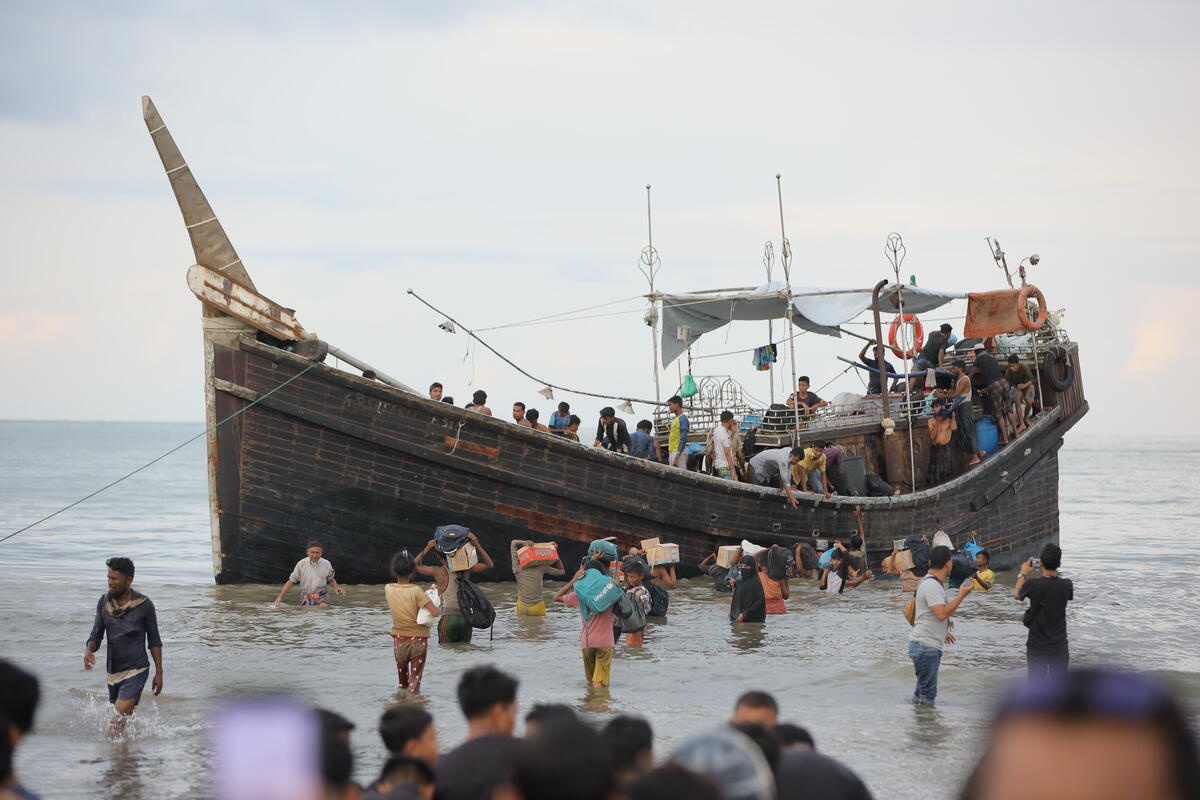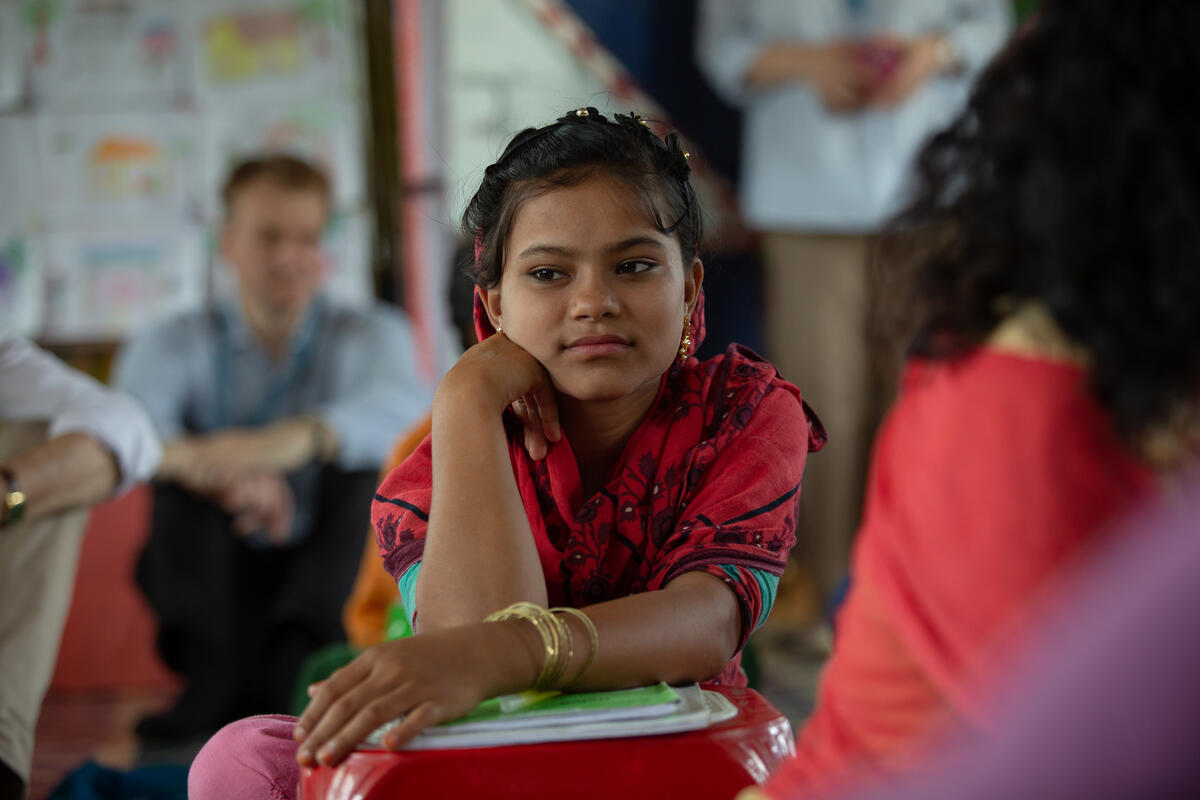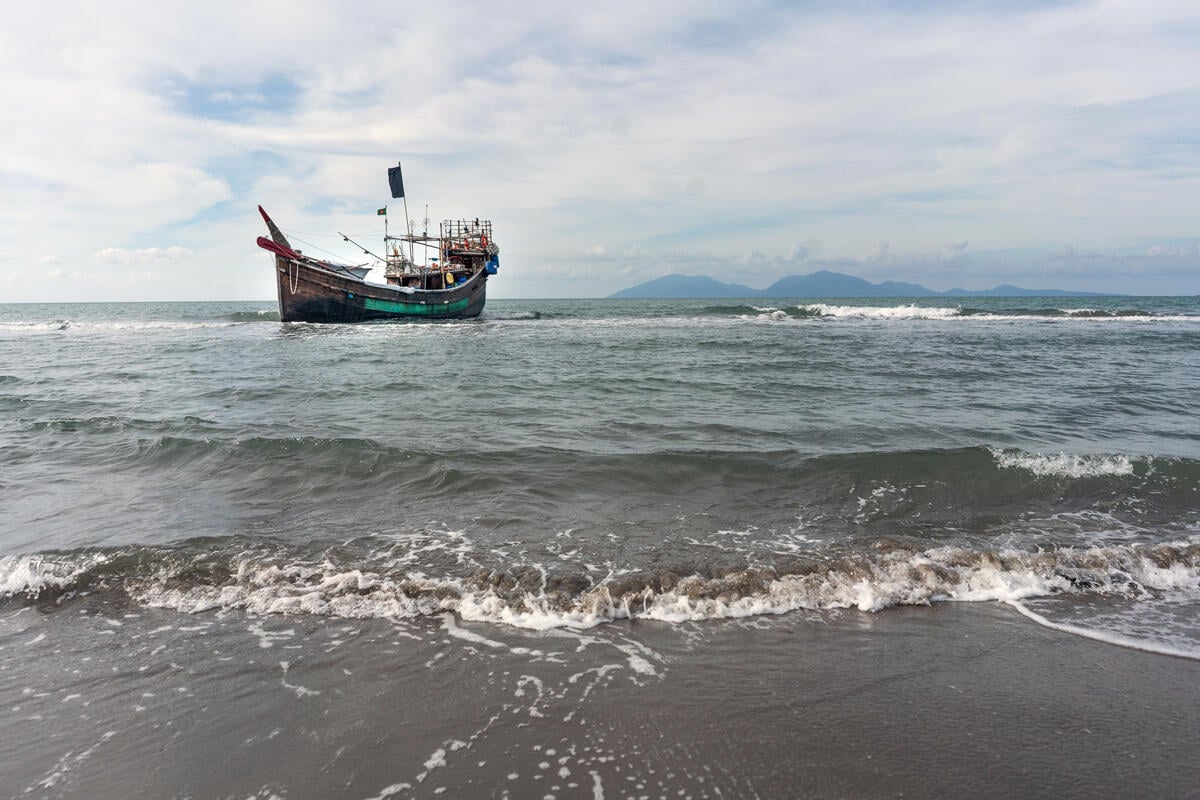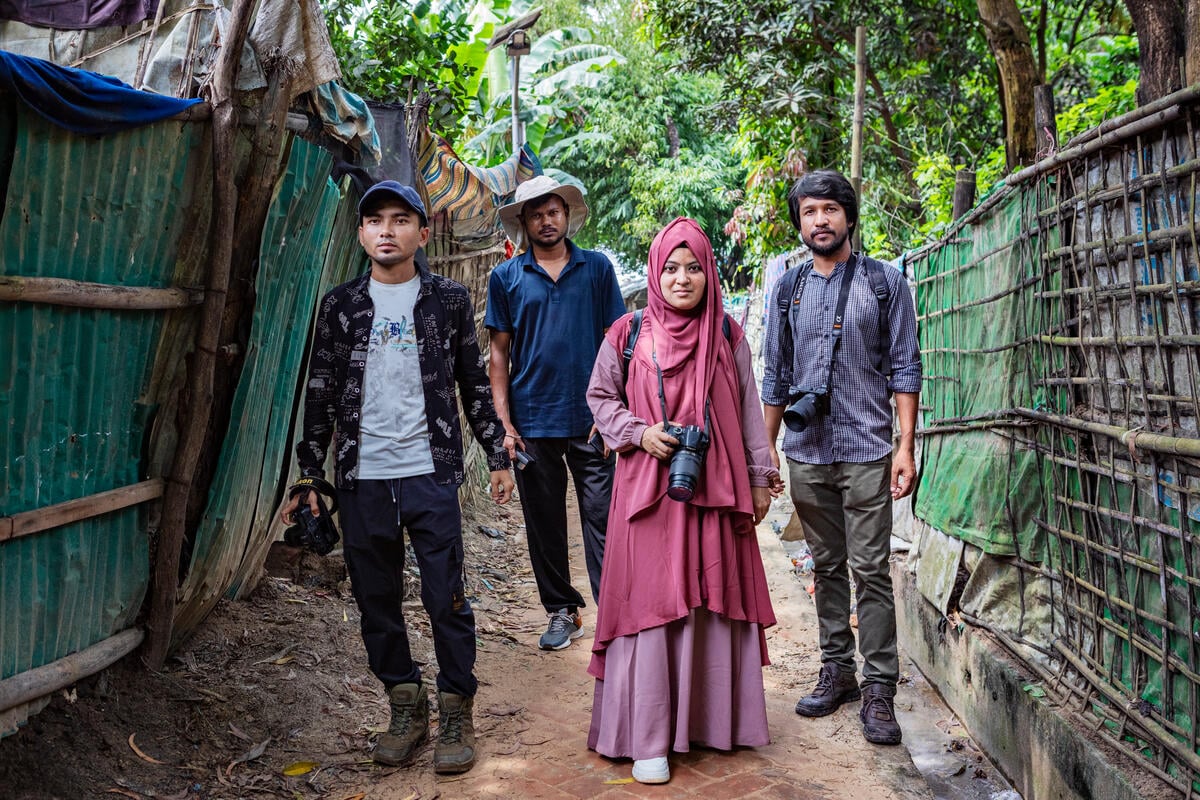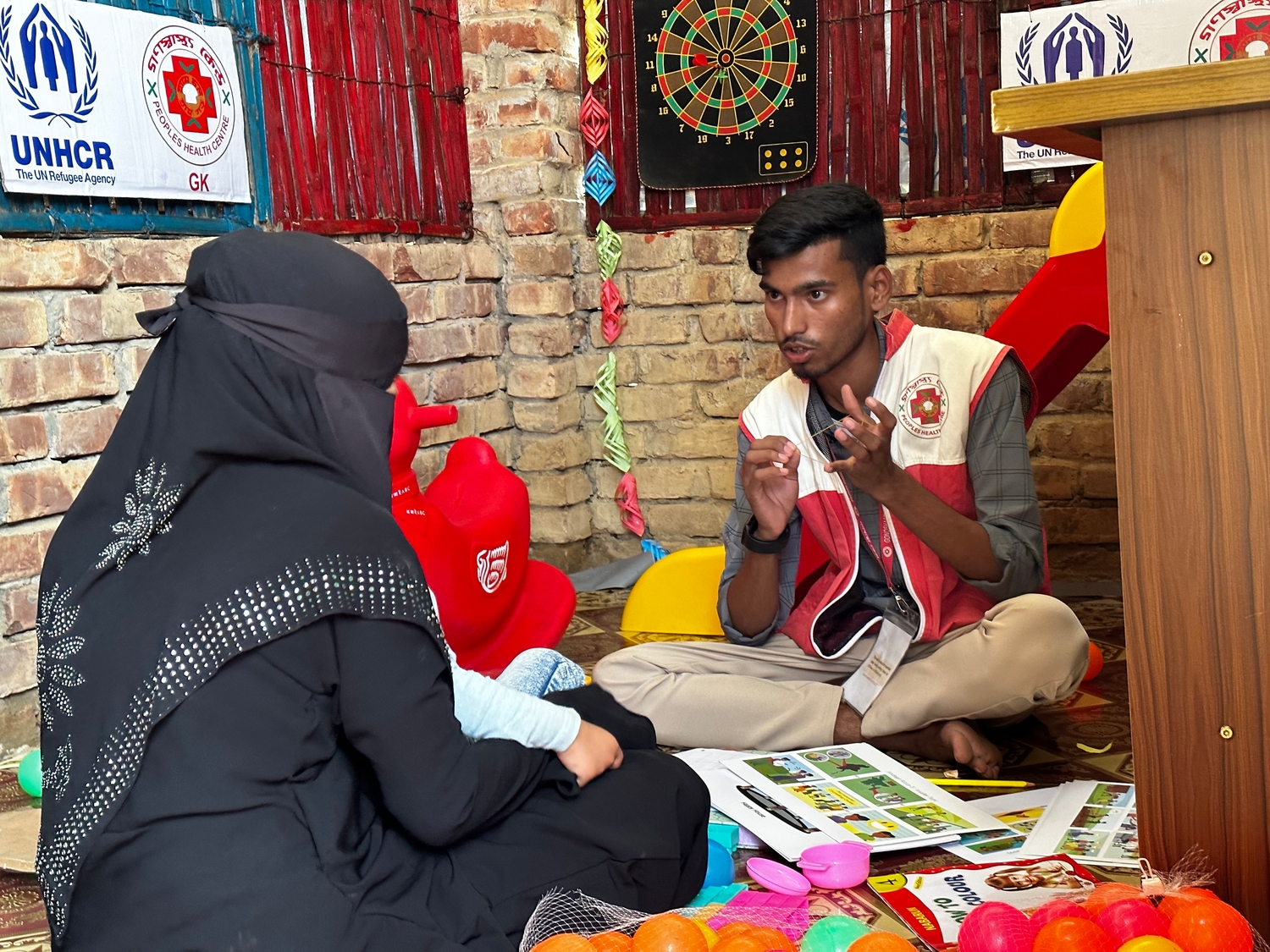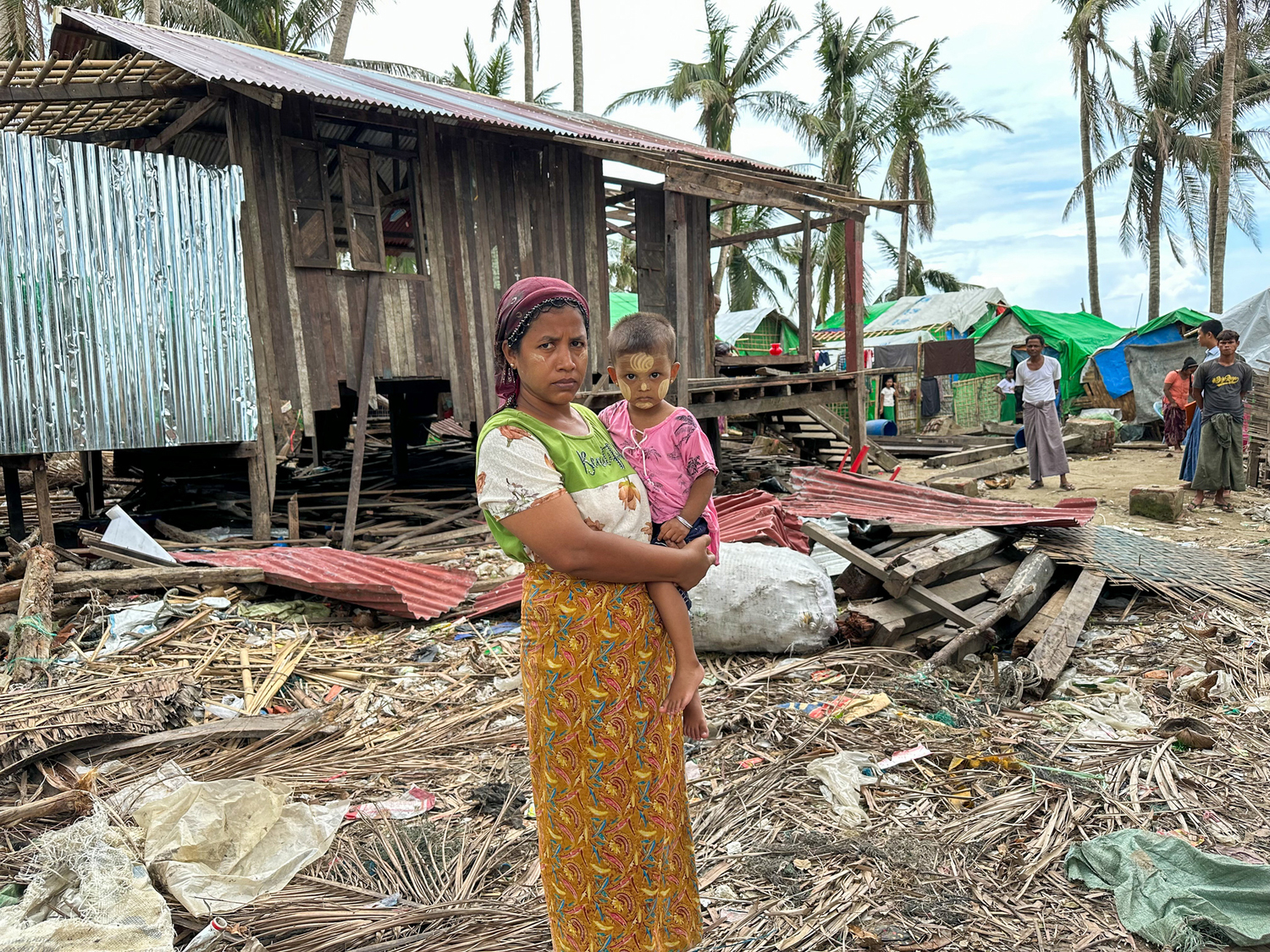Dutch MP calls on Thai government to relax restrictions on refugees
Dutch MP calls on Thai government to relax restrictions on refugees

BANGKOK, Thailand, August 9 (UNHCR) - During nearly a month spent in three refugee camps on the Thai-Myanmar border, Dutch parliamentarian Corien Jonker was frequently asked by refugees if she could ever flee her own country and live for years in a refugee camp.
"I thought about it very seriously, and I believe I could find the strength to flee my homeland if I were trying to save my life," the Christian Democrat MP said Wednesday at the end of her trip to Thailand. "What I would find most difficult would be 10 years of enforced idleness in a refugee camp."
The insights she gained into the lives of Karen refugees from Myanmar - who make up the majority of the 140,000 refugees in Thailand - prompted her to call on the Thai government to ease restrictions on the refugees. Specifically, she called for them to be allowed to venture outside the camps for both work and education, and to work legally.
"Thailand needs workers," Jonker said. "It's absurd to see these vast open lands around the camps and then to see all these people [nearly 75,000 in the three camps she visited] living in cramped conditions. This is a terrible waste of people who could be productive.
"It would be much better for them and for Thailand," she added, "if they could go out and farm or undertake other activities to earn a living and support themselves. This would bring not only material benefits, but psychological ones as well. They feel better as human beings."
Jonker, speaking at a press conference in Bangkok, urged the Thai government to allow the refugees "to contribute to Thailand with dignity and self-respect."
Thai government policy is that the country's nine camps - which the government runs and which UNHCR can visit only during the day - are temporary shelters. Residents are forbidden to come and go freely - if found outside, they can be arrested and deported back to Myanmar. Thailand has not signed the 1951 Refugee Convention and though it does consider the camp residents to be displaced people, it does not use UNHCR's terminology that they are refugees.
Hasim Utkan, UNHCR's regional representative in Bangkok, welcomed Jonker's support. "We are trying to persuade the Thai government to relax its restrictions on the refugees' movements and activities," Utkan said. "Some of these people have been here for 20 years and they unfortunately are not going home soon, so it would be humane to allow them to work and contribute to Thai society."
At a time when most Europeans were enjoying their summer holidays, Jonker instead headed for the jungles of western Thailand to spend a month listening to - and learning from - Karen refugees in Mae La, Umpium and Nupo camps.
"I had worked in the immigration department in the Netherlands and have long had an interest in why people leave their homelands," she said. "I wanted to go straight to the refugees and find out how they are living and what they think."
Jonker said she was struck by the fact that men and women reacted differently to the ban on working and enforced enclosure. "The men have largely become lethargic and apathetic, and some of them abuse alcohol," she said. "The women, on the other hand, have reacted to their exile by becoming much more active. I saw many dynamic women who are taking advantage of any opportunity they get. In Umpium [home to 18,463 refugees, of whom half are women and girls] the Karen Women's Organisation has more than 2,000 members."
Using her experience as an elected member of parliament, Jonker consulted the refugees on their system of electing leaders within the camps. Although the UN refugee agency has imposed a quota system that requires half the candidates to be women, few women are actually elected to leadership positions.
Jonker called for more education to improve refugees' understanding of the election process, and to help women vote strategically. Utkan welcomed the suggestion, saying lofty goals often fail to be translated into action on the ground.
Jonker, whose party forms part of the government in the Netherlands, returns home to campaign to retain her seat in November's general election.
By Kitty McKinsey in Bangkok, Thailand

